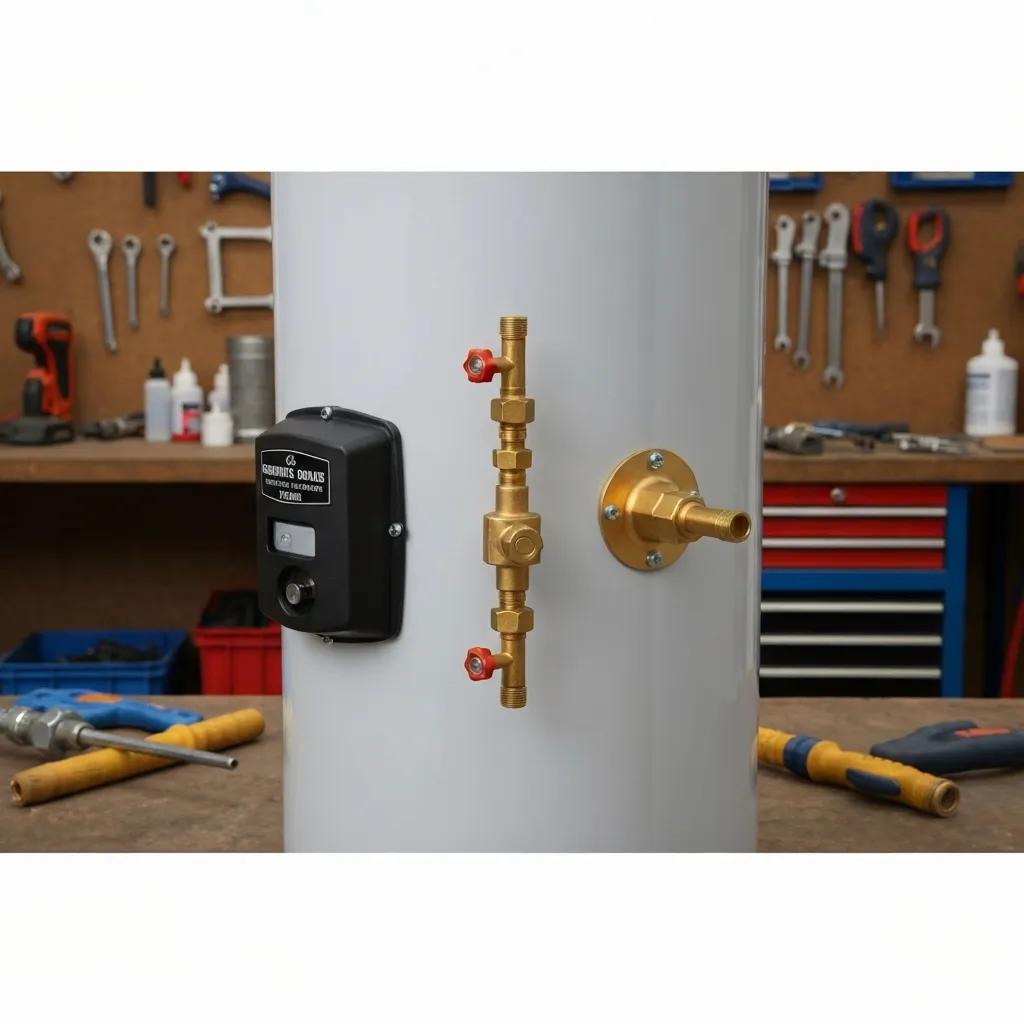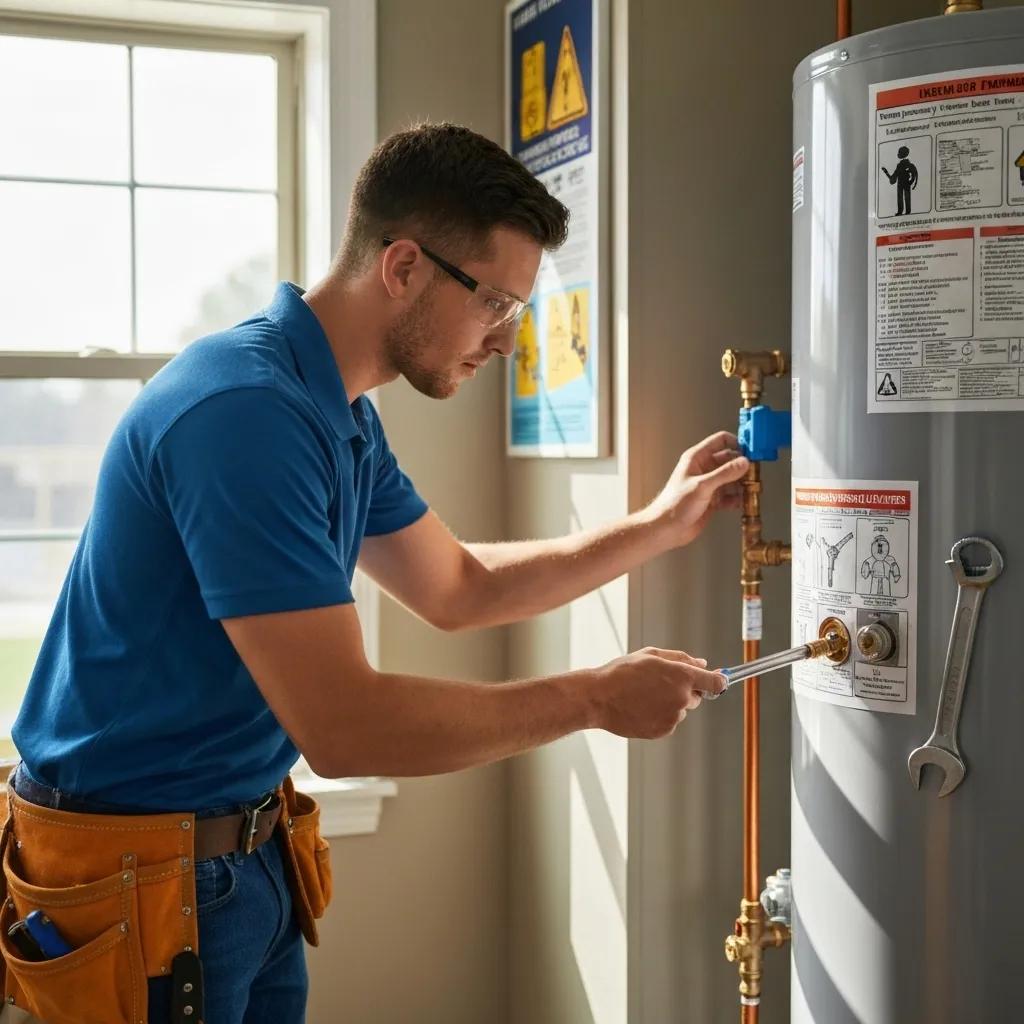Should You Buy Your Water Heater from a Plumbing Contractor? Understanding the Benefits, Costs, and Expert Installation
Make informed decisions on water heater installations with expert insights. Evaluate options and choose the best fit for efficiency and budget. Upgrade today!
Free Estimate
Choosing and installing a new water heater is a major step toward improving your home's comfort and energy savings. However, where you purchase it can significantly affect its safety, how reliably it performs, and your long-term expenses. Homeowners often find themselves weighing the ease and lower upfront price of buying from large retail stores against the professional-grade equipment, adherence to building codes, and labor warranties offered by a licensed plumbing contractor. This guide dives into the differences between contractor-grade and retail water heaters, covers best practices for installation, explains warranty coverage, breaks down the true costs involved, and shows why Orlando homeowners rely on Brightwater Plumbing Orlando for expert, code-compliant water heater replacements.
Here's what you'll learn:
- The key quality distinctions between water heaters designed for contractors versus those sold in retail stores.
- The essential advantages of having your water heater installed by a professional according to Orlando's plumbing regulations.
- The benefits of warranties and labor protection when you purchase your water heater through a plumber.
- A clear comparison of costs and available financing options.
- How Brightwater Plumbing Orlando's local expertise, streamlined process, and dependable maintenance services can help you.
When Buying a Water Heater, What Are the Main Differences Between a Plumber and a Retail Store?
Purchasing a water heater through a plumbing contractor means you get professional-grade equipment along with expert installation. In contrast, retail stores typically offer consumer-grade models without installation support or performance guarantees. Units sourced from contractors are built with durable materials, are sized correctly for your needs, and come with integrated warranties, while heaters bought from retail outlets may leave you to deal with the complexities of self-installation and limited warranty terms.
How Do Contractor-Grade Water Heaters Stack Up Against Retail-Grade Models?

Contractor-grade water heaters are built with higher-quality parts, better insulation, and undergo stricter quality checks to ensure they last longer and operate more efficiently. Retail models, on the other hand, often prioritize a lower price point over durability and may lack features that contribute to a longer service life.
FeatureContractor-Grade ModelRetail-Grade ModelDrain Valve MaterialHeavy-duty brass valve, tested for 10,000 cyclesPlastic drain valve, prone to cracking over timeTank Insulation2-inch thick foam with excellent thermal resistance1-inch fiberglass wrapCorrosion ProtectionTwo large magnesium anode rodsOne smaller, lighter anode rodCertificationsEnergy Star, ANSI/ASME compliantBasic UL listing onlyWarranty Coverage6–12 years manufacturer warranty plus labor coverage3–6 years manufacturer warranty only
The use of superior components and advanced insulation leads to better energy efficiency and fewer maintenance headaches, paving the way to explore exclusive brand options.
Key Differences: Professional-Grade vs. Retail Water Heaters
Water heaters designed for professional installation, typically purchased through plumbing contractors, often feature higher-quality materials like thicker steel, copper elements, and brass drain valves. This contrasts with the more budget-friendly aluminum and plastic parts commonly found in retail models. This superior construction contributes to a longer operational life, with professional units potentially lasting 12-15 years compared to 6-8 years for retail versions, while also offering improved energy efficiency and requiring fewer repairs.
This information strongly supports the article's points about the superior quality, durability, and efficiency of contractor-grade water heaters compared to retail models, as detailed in the comparison table and descriptive text.
What Water Heater Brands Do Plumbing Contractors Typically Recommend?
- Rheem units offer consistent water temperature and advanced self-diagnostic features.
- Bradford White models include Hydrojet® self-cleaning technology to minimize sediment buildup.
- A.O. Smith heaters feature patented glass-lined tanks designed for enhanced corrosion resistance.
- Rinnai tankless systems provide hot water precisely when you need it and boast high energy efficiency ratings.
- Navien condensing tankless heaters integrate smart technology for convenient remote monitoring.
What Are the Typical Component Differences: Brass Valves, Anode Rods, and Tank Insulation?
Professional-grade units are equipped with premium materials and construction techniques to prevent common failure points:
- Heavy-duty brass drain valves are more durable and make future maintenance easier.
- Larger magnesium or aluminum anode rods offer extended protection against corrosion deep within the tank lining.
- High-density foam insulation significantly reduces heat loss and improves water heating recovery times.
These superior valves, reinforced anode rods, and thicker insulation work together to lower energy usage and extend the time between necessary services, making professional sourcing a smart choice for homeowners who value reliability.
Anode Rods: Crucial for Extending Water Heater Lifespan and Preventing Corrosion
Anode rods, often called "sacrificial rods," are vital components in water heaters, typically made from magnesium, aluminum, or zinc. They work by attracting corrosive elements through an electrochemical process, which shields the steel tank from rust and significantly extends the unit's operational life. Regular checks and timely replacement, generally advised every 3-5 years depending on your water quality, are essential maintenance steps to avoid premature tank failure and leaks.
This information reinforces the article's discussion on the importance of anode rods in water heater construction and maintenance, particularly in the section detailing component differences and their role in extending service life.
Why Is Professional Water Heater Installation by a Plumbing Contractor So Important?

Professional installation involves precise sizing, strict adherence to Orlando's plumbing codes, and thorough safety checks—all critical factors that impact system performance, warranty validity, and the safety of your household.
How Do Licensed Plumbers Ensure Safety and Compliance with Orlando Plumbing Codes?
Licensed plumbers manage the permit process, conduct required code inspections, and install essential safety devices:
- Installing temperature-pressure relief valves to prevent dangerous overpressure situations.
- Confirming seismic strapping and proper drainage according to Orlando building regulations.
- Obtaining necessary permits and scheduling municipal inspections.
- Adjusting thermostat settings to meet local energy efficiency standards.
These safety measures protect your property and ensure your insurance coverage remains valid. They also highlight the potential risks associated with DIY or retail installations.
What Are the Risks of DIY or Retail-Purchased Water Heater Installation?
Attempting to install a water heater yourself or hiring someone without the proper credentials can invalidate warranties, violate local codes, and create serious safety hazards:
- Incorrect venting can lead to dangerous carbon monoxide buildup in your home.
- Insufficient pipe sizing can cause pressure imbalances and leaks.
- Work done without permits may result in fines or failed home inspections.
- Using non-compliant parts can void manufacturer warranties and homeowner insurance coverage.
The Crucial Role of Professional Installation in Water Heater Performance and Warranty Validity
Professional installation of water heaters is essential for ensuring safety, compliance with local building codes, and maintaining manufacturer warranty coverage. Experts emphasize that improper do-it-yourself (DIY) installation can lead to significant hazards like gas leaks or electrical issues, void manufacturer warranties, and result in costly code violations. Licensed plumbers possess the specialized knowledge needed to accurately size, install, and connect water heater units, thereby optimizing their performance and energy efficiency.
This information strongly supports the article's emphasis on the importance of professional installation for safety, code compliance, and warranty protection, directly reinforcing the sections on installation risks and warranty validation.
Understanding these potential dangers clearly demonstrates the value of professional sizing and integration for your home's safety and adherence to building codes.
How Do Plumbers Accurately Size and Integrate Water Heaters for Orlando Homes?
Plumbers carefully evaluate your household's hot water needs, the incoming water temperature, and your home's plumbing capacity to determine the ideal unit specifications:
- Calculating the first-hour rating based on family size and peak usage times.
- Matching the gas or electrical supply capacity to the unit's requirements.
- Integrating necessary components like expansion tanks or recirculation loops.
- Customizing venting systems for optimal airflow and code compliance.
Proper sizing and integration ensure you consistently have enough hot water, reduce wasted energy, and enjoy smoother operation throughout the unit's lifespan.
Get a Free Quote!
Terms and Conditions
Request a Quote
Terms and Conditions
Request a Quote
Terms and Conditions

